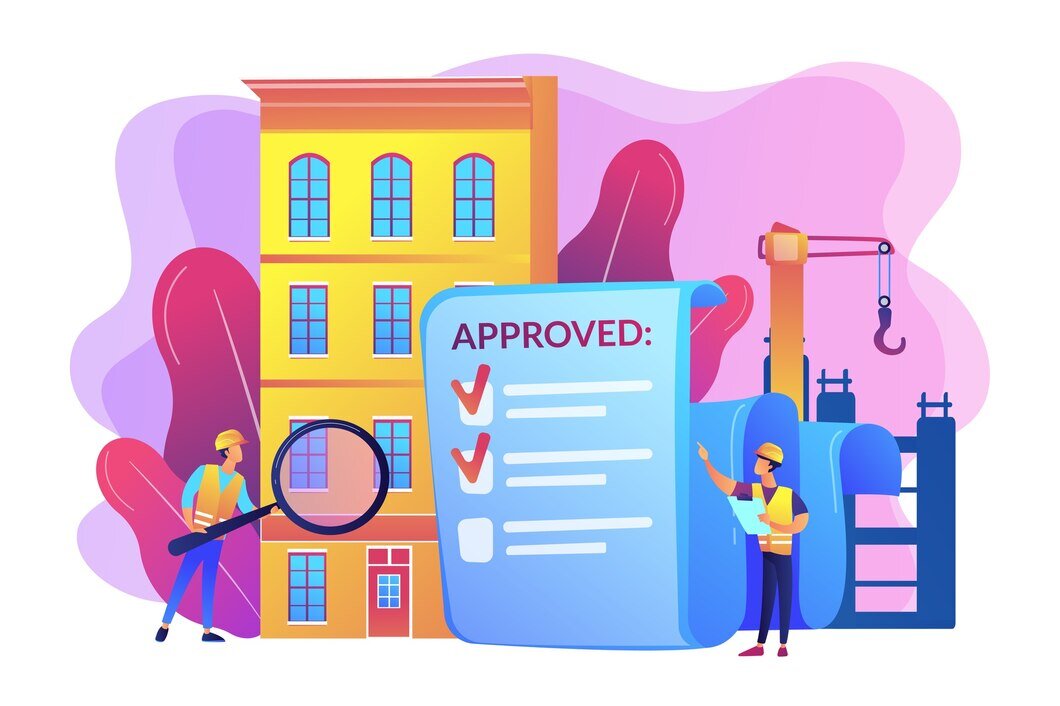Introduction
Negotiations when selling a house are a big part of the process. Nobody knows how to negotiate better than someone who has sold a house before. Knowing how to do it can get you the best sale price and terms. It’s not enough to just find someone to buy your house; you also need to know how to negotiate well to get the most money for it and keep the process easy and stress-free. This guide will teach you the most important things you need to know to master negotiations when you’re selling a house, from how to evaluate deals to how to handle common negotiation situations. If you learn these skills, you’ll be able to handle offers with ease and close the deal the way you want.

This home selling guide is prepared by professional home buyers from Cardinal House Buyers
Preparing Your Home and Mindset for Negotiation
When selling a house, getting ready for the talks is very important. There are two very important things you need to do before you start getting offers and talking to possible buyers: get your home ready to sell and get your mind ready for the negotiation process. If you can do both well, you’ll be better able to negotiate and get the best deal possible.
Preparing Your Home for Negotiations
When you’re trying to sell your home, the state and presentation of it are very important. People are more likely to make a good offer on a house that looks nice and has been well taken care of. Here are some things to do:
Get rid of junk and clean up. A clean home helps buyers picture themselves living there, which can lead to higher offers. Clean every room very well and clear off surfaces like counters, shelves, and other surfaces.
Fix small problems like leaky taps, squeaky doors and chipped paint. Buyers are more likely to be interested in homes that are in good shape, which gives you more power in negotiations.
Staging Your Home: Staging can help people see what your home could be like in its fullest form. Whether you do it yourself or hire a pro, make sure every room is warm and friendly and the furniture is set up to show off the best parts of the house.
Curb appeal: How you look at first matters. Keep the outside of your house looking nice by mowing the grass, cleaning the bushes and if necessary, add new plants or flowers. A clean yard will set the tone for a good negotiation process.By doing these things to your home, you’ll set yourself up for successful talks when selling your home which increases the chances of getting multiple offers.
Preparing Your Mindset for Negotiations
In addition to getting ready at home, you need to get ready in your mind for the discussion process as well. To be successful do these:
Know Your Bottom Line: Figure out the lowest price you’ll accept before anyone makes you an offer. That way you’ll have a clear goal and won’t have to make rash decisions when selling your house.
You want to get the best price possible but you also need to be willing to give in on some things. You need to know that some buyers will want repairs or a lower price so be prepared to find a middle ground. Most of the time being prepared to negotiate will get you a better deal and a faster sale.
Don’t let your emotions get in the way. If you’ve lived in the house for a long time, negotiations can get heated. That being said, staying calm and logical will help you make good decisions for yourself. Don’t let your thoughts about the house cloud the big picture.
Focus on solutions that are good for both sides. When you’re selling your house remember talks don’t have to be adversarial. You and the buyer both want the deal to go through. Talk about the discussion as a team effort to find terms that everyone can agree on.
Call a Professional: If you’re not sure how to handle the discussion you might want to work with a real estate agent who has done it before. They can give you good advice and even take the lead in some situations to get you the best result.

Evaluating Offers: What to Look For in Negotiations When Selling a House
Get offers on your house! It’s exciting to negotiate these offers when you’re selling your home. But you should carefully consider each offer to make sure you’re making the best decision for yourself and your finances. During this time you need to balance careful analysis with strategic thinking to get the best sale price and terms.
When negotiating here’s what you should look for in an offer.
Price vs. Terms: Why Both Matter in Negotiations When Selling a House
The price is part of any offer but it’s not the only thing that matters. When you’re selling your house the terms of the deal are a big part of the overall value. You might be tempted to accept a higher offer but it could come with conditions or a long close. Look at both the price and the terms of the deal to see if they fit your goals.
Buyer’s Financial Position: Evaluating Offer Strength
Knowing how much money the buyer has is one of the most important parts of analyzing offers. Negotiations when selling a house should take into account if the buyer is pre-approved for a mortgage, offering all cash or has a bigger down payment. One good thing about cash buyers is they don’t have to worry about the risks that come with loans and appraisals. Buyers who are already pre-approved are more reliable because they’ve already received funding.
Contingencies and Clauses: What They Mean for Your Sale
Contingencies are common in negotiations to sell a house but they can make the deal less certain. Most of the time offers with fewer conditions like inspection, appraisal or funding requirements are more appealing. Buyers will ask for conditions but you should carefully think about how these conditions will affect the timeline of your sale. For example if a buyer asks for a long time to view the property or an appraisal to be done first this could delay the close which could mean you miss out on other opportunities.
Close of Escrow: Does It Fit Your Schedule?
When selling a house the close of escrow is one of the most important things to discuss in the negotiation. Some buyers may need to close quickly because of personal issues while others may need more time to move. The close of escrow in the offer should fit your plans. A flexible schedule can help you negotiate especially if you’re looking at multiple offers or want to work with a specific buyer.
Earnest Money Deposit: The Buyer’s Commitment
A buyer’s earnest money deposit shows they are serious about buying the house. When you’re selling your house a bigger deposit means the buyer is more stable and will go through with the deal. A small deposit or no deposit means the buyer isn’t serious and could lead to delays or problems later on in the process.
The Buyer’s Flexibility: Are They Willing to Compromise?
When you’re selling your house you need to know how flexible the buyer is. Are they willing to talk about fixes, price changes or other conditions? It’s easier and faster to do business with someone who is open on terms. If you have multiple offers a buyer who is firm on their price and terms could be a sign of something wrong.
Comparing Your Offers: Taking Advantage of the Competition
When you’re selling a house talks can get even more complicated if you get multiple offers. Look at each offer not just by price but by conditions, buyer’s strength and terms of close. Having multiple offers to choose from gives you more power in talks which could get you better terms or a higher price. To make the best choice look at every part of each offer.

Seller Negotiation Strategies
Negotiations when selling a house can make or break the deal. Whether you’re negotiating with a seasoned real estate agent or by yourself knowing how to negotiate well can get you the best deal. You’ll feel confident at the negotiation table if you know the tricks and are ready. For buyers here are some of the best ways to negotiate:
Start with a Strong Counteroffer
When someone makes you an offer especially if it’s lower than what you’re asking you need to make a counteroffer that shows where you stand. Negotiations when selling a house require you to show how valuable your house is and back up your price with evidence like recent sales of similar homes or the unique features of your home. If you make a good counteroffer it sets the tone for a good discussion and lets buyers know you mean what you say about your price.
Know Your Walk Away
If you want to sell your house you need to know what your lowest accepted offer is before you start negotiating. This is your walk away number or the price you’ll take. If you know this number ahead of time you won’t make impulsive decisions during the negotiation process. Knowing what you want will help you stay focused and confident even when talks get tough.
Be Willing to Compromise
When selling a house you need to be flexible to negotiate well. There are some things you should never give in on like price but there are other things you can give in on without hurting your walk away number. You can make small concessions like paying for closing costs, fixing small things or changing the close of escrow. Most of the time these kinds of agreements will get the deal done faster and make everyone happy.
Use Multiple Offers to Your Advantage
If you’re lucky enough to get multiple offers use this to your advantage. When there are multiple offers buyers may feel rushed and compete which can drive up the price. This works best when buyers know you’re also considering other offers on the house. They may be willing to improve their terms to stay in the running.
Maintain Control with Clear Communication
Clear, cool and professional communication is one of the most important skills in negotiating. When you’re negotiating to sell your house don’t let your emotions get in the way of your judgment. When someone makes an offer you should respond quickly and clearly explain your terms and objectives. If the buyer comes back with a counter-proposal you don’t agree with explain why and suggest other options. The goal is to keep the talk going in a good direction.
Know When to Say No
The deal can get bad no matter how hard you try to make it better. When you’re selling your house you need to know when to say no. You may want to look at other offers if the buyer won’t agree to your price or terms and won’t back down. You’re not giving up on the deal if you say no. You’re just waiting for a better offer that fits your needs.
Play Hard to Get—But Not Too Hard
When you’re selling your house one subtle trick is to not seem too eager to sell. When a seller seems really eager to close the deal buyers may take advantage of them. By keeping your distance and not rushing to make a deal you can often give the impression of value and urgency. The best way to use this strategy is with other ones like making a clear offer and being ready to discuss terms not price.
Think Outside the Box to Close the Deal
For buyers who are unsure or hesitant come up with creative ways to make the deal more appealing. Price isn’t always the only factor in negotiations when selling a house. You could offer a quick close, rent-back (where the buyer lets you stay in the home briefly), or flexible payment terms. Giving the buyer different terms can help you meet your wants and theirs at the same time.
Be Prepared for Buyer Contingencies
A home inspection, appraisal or approval for financing are just a few of the things most buyers will do before they make an offer. When you’re negotiating to sell your house know how these things can change the deal altogether. You should be ready to negotiate these conditions if the buyer wants major repairs or if you’re worried the sale will fall through because of financing issues. You may agree to fix some things, give points or change the price but make sure the terms are good for you.

Common Negotiation Situations
Knowing the common scenarios can help you feel more confident. Negotiations when selling a house are part of the process. Whether you’re up against lowball offers, inspection conditions or other bidders being prepared can make all the difference in getting the best deal. Let’s look at some of the most common situations where you’ll have to negotiate when selling your house.
Lowball Offers in Negotiations
A lowball offer is one of the most common things that can happen in negotiations. When someone makes an offer way below what you want it can be frustrating for you as the seller. But don’t let your emotions get in the way. People who want to buy something will often make a low offer to see how flexible you are and to start the negotiation under pressure.
How to Handle Lowball Offers:
Don’t panic. Take your time to think about the offer.
Offer a counteroffer that is more reasonable and closer to your price.
Be willing to give: Know that there will be give and take. If you can, find a middle ground.
Inspection Contingencies and Repair Requests
Inspection possibilities are another common scenario that comes up in negotiations. Once the buyer has had a check, they can ask for repairs or a credit to cover problems found. This is a big part of the talks when selling a house because it can make or break the deal.
How to Handle Inspection Contingencies:
Read the Report: Read the inspection report and prioritize fixes based on how bad they are and how they’ll affect the sale.
Talk about repairs or credits: Decide if you want to fix things or give the buyer a credit at close.
Be firm on some issues: If the problem is small you may not offer to fix or credit but be ready to talk about it.
Multiple Offers and Bidding Wars
When the market is hot more than one person may be interested in your home which could mean more than one offer. This is a great opportunity but it needs to be handled carefully. In a bidding war negotiations can be tough but can also get you a better price.
How to Handle Multiple Offers:
Look at the terms: Besides price you should also think about contingencies, the buyer’s ability to pay and the buyer’s ability to close quickly.
Use competing offers: If you have more than one good offer you can use this to get buyers to send you their best terms.
Be open and honest means letting all buyers know there are other offers and giving them a chance to make their terms better.
Buyer Financing Issues
Sometimes the buyer’s financing may not work out or be weaker than what was first offered. This can change how you negotiate when selling your house because you may have to wait longer or lower your price to fit the buyer’s budget.
How to Handle Financing Issues:
Check Financing First: Before you start negotiating make sure the buyer has already been approved for a mortgage.
Think About Cash Offers: If you can think about cash offers because they have fewer problems and can move the process faster.
Be Flexible: If you still want to sell to that buyer you may have to lower the price or offer other benefits like helping with closing costs to make the deal work.
Closing Date Negotiations
The closing date is another thing that can be negotiated. Some buyers want to close fast, others want more time. This is something you should think about especially if you already know what you want to do next.
How to Handle Closing Date Negotiations:
Know Your Schedule: Before you agree to a close date make sure it works with your plans and schedule.
Be Flexible with Your Offer: If you can be flexible with the close date it could help you and the buyer get a better deal.
Know what the buyer wants: Try to come up with a close date that works for both of you by working with the buyer.

Handling Counteroffers and Finalizing the Deal
Dealing with counteroffers is the most important part of negotiating the sale of a house. This is where you really have to show off your selling skills because this is where you can win or lose the deal. In this section we’ll talk about the most important things you can do to handle counteroffers and get your sale done.
Presenting and Responding to Counteroffers
A counteroffer is a normal part of the process of negotiating the sale of a house. A buyer makes a counteroffer when they respond to your first price offer with terms that are different from yours. It’s better to have a plan for your counteroffer than to just reject the buyer’s terms or give in too quickly.
Think about the buyer’s position: Before you respond think about the buyer’s finances, why they want to buy and how their counteroffer compares to other offers you’ve received.
Plan for a counteroffer: If the buyer’s counteroffer is close to what you want but needs a few small changes you might want to make your own. This keeps the talks going without scaring off other buyers.
Make Ground Rules: Be ready to talk about your bottom line. You shouldn’t be afraid to make it clear what you’ll accept if the buyer’s counteroffer is way below what you expected.
The Art of Flexibility in Negotiations
Negotiating a house sale often requires wiggle room. Sellers may have to give on some things like repair credits, moving the close date or paying some of the closing costs. How to find a middle ground:
Creative Solutions: If the buyer wants a lower price but still wants to buy you can help them by giving them other benefits like paying the closing costs or a repair credit. With these options a slightly lower deal might seem more appealing without lowering your sale price by much.
Flexibility in the close date: Changing the close date can be a small move that helps both sides get a deal. This kind of flexibility can be very helpful if the buyer needs to move in by a certain date.
Knowing When to Walk Away
When selling a house talks are about finding common ground. But you need to know when to get out of the deal. If any of these happen it might be time to move on:
You didn’t expect the offer to be this low. If the buyer won’t budge on the price and you can’t agree on terms it might be best to walk away and keep looking for a better deal.
Too Many Conditions: If the buyer’s counteroffer has too many conditions like a long time to view the property or financing terms that look risky it could mean they’re not fully committed to closing the deal.
No Communication: If a buyer stops responding or doesn’t provide the paperwork that’s requested it could be a sign they’re not serious about moving forward.
Finalizing the Deal
The deal is done when both sides agree. When selling your house make sure everything is in writing and there are no more surprises. What you need to do:
Sign the Sales Contract. This is the legally binding document that outlines the final terms agreed upon. Read the contract carefully and make sure all the details match what was agreed upon.
Clear the Conditions: Make sure all the conditions that needed to be met before close happen like inspections or getting the money to buy the house.
Check the close details: Make sure you and the buyer both know when the close will be and what needs to be done before payment.
Finalizing the Deal and Preparing for Close
Once your counteroffers are negotiated and a deal is made it’s time to close. Here are a few last steps to make it smooth:
Work with Your Agent: Your real estate agent will make sure all the paperwork is done on time and the close goes smoothly.
Get ready for checks: The buyer may request a review depending on the terms of the deal. Be prepared for more talks based on the inspection results.
Finish the finances: Make sure everything about the money is correct including the agreed upon payments, closing costs and sale price.

Close the Deal: Seal the Agreement
When selling a house the last and most important step in the talks is to close the deal. It’s time to agree on something that works for everyone after going through offers, counteroffers and inspection conditions. This step can be scary but if you do it right you can close with confidence and make the process smooth from talks to a successful sale.
Review the Final Offer
Before moving forward read the final offer carefully to make sure all the terms are clear and acceptable. Make sure all the conditions are met like inspections, appraisals and getting the money to buy the house. Make sure any agreements you made during the negotiations to sell your house are written down correctly. For example if you agreed to pay for repairs or closing costs make sure those terms are written down correctly.
Verify the Buyer’s Funds
Now make sure the buyer has the money to follow through on the deal. This means reviewing their mortgage pre-approval letter or making sure they can pay cash. If you’re not sure ask for more proof to make the process smooth.
Finalize the Contract
The deal is done when everyone agrees. This means reading the paperwork carefully to make sure it’s complete and includes all the terms of the deal when selling a house. If you need to have a lawyer or real estate agent review the deal to protect your interests.
Negotiate the Close
In some cases you may need to discuss the close details like the date, the buyer’s request to move in after close or other issues. Now’s the time to wrap up any last minute details and make sure it fits your needs. Open and clear communication is key because both sides may have different needs.
Sign the Agreement
Once everyone agrees and has gone over all the rules it’s time to sign the agreement. To transfer ownership both you and the buyer will need to sign the papers. Remember this is a legally binding contract so make sure everything is correct before you sign.
Close Process
When selling a house the talks are over once the contract is signed. Now it’s time to prepare for close. Set the close date, work with your agent, the buyer and anyone else involved (like your mortgage lender or lawyer) and get your home ready for the final review.

Conclusion
When you’re selling a house, you need to be able to negotiate well. This can have a big effect on the end sale price and the success of the sale as a whole. You can make sure you’re making smart choices at every step by carefully weighing offers, using good negotiation strategies, and being ready for common negotiation situations. Whether you have to deal with contingencies, multiple offers, or problems with the buyer’s finances, staying calm, professional, and strategic will help you get the best result. Remember that being able to bargain with confidence and flexibility is the key to making a sale. To learn how to negotiate when you’re selling a house, you need to stay in charge of the process, keep your eye on your goals, and get help from professionals when you need it.


But it gets better:
You can sell fast without an agent with no rush to move. You don’t have to move out right away; you can stay in your home for awhile until you locate another home.
We are confident that we can help you today – regardless of the situation.

